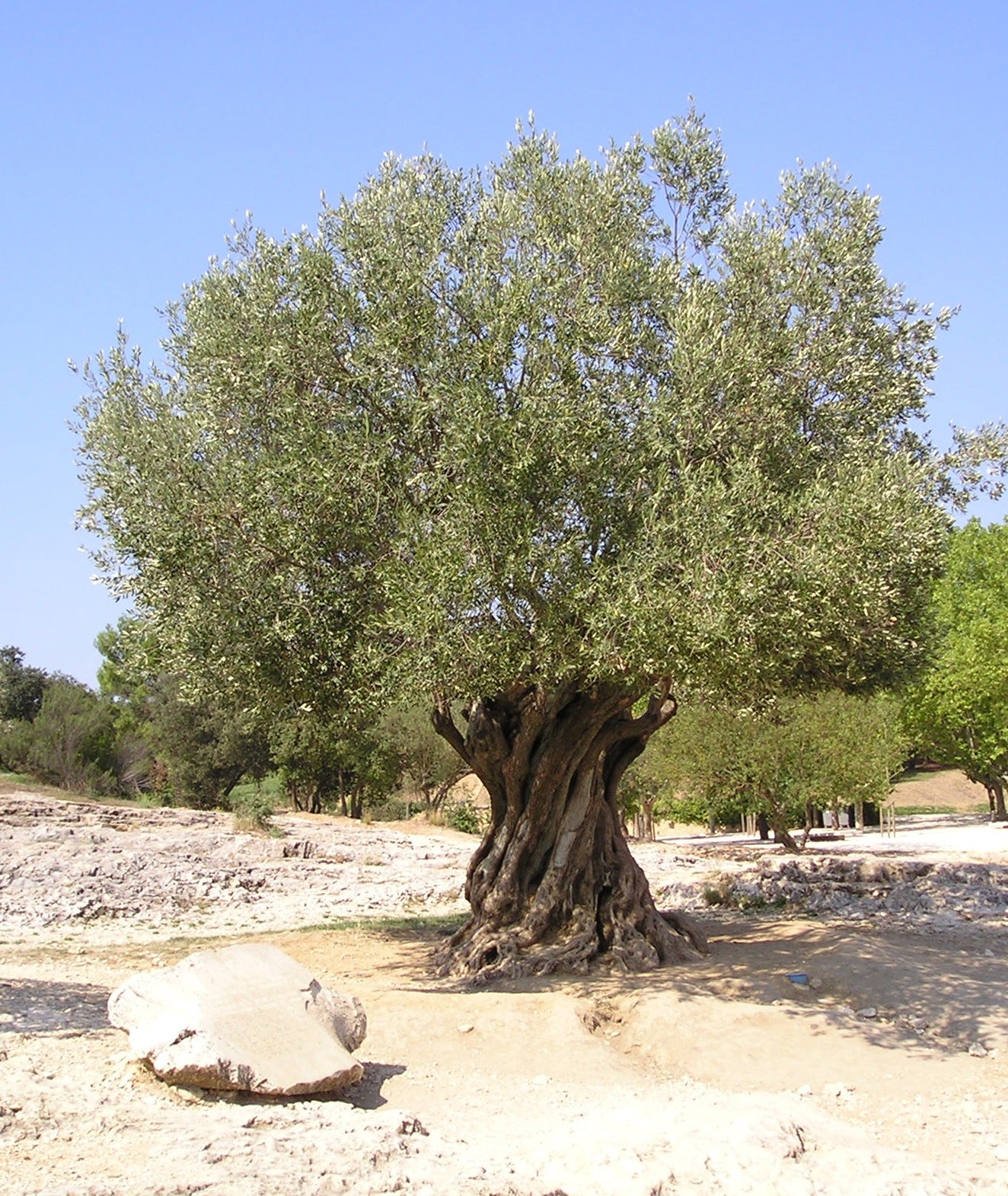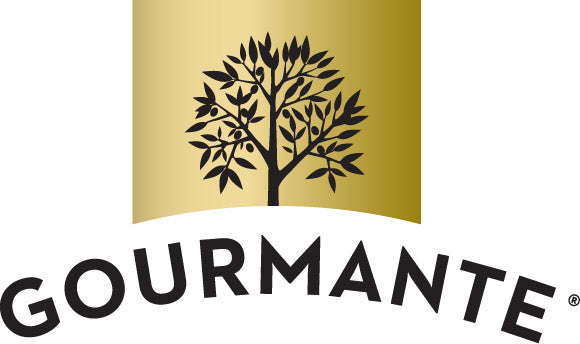
The mascot of the Mediterranean diet, olive oil, is well researched for its beneficial effect on heart health.
Extracts from the olive plant concentrate the beneficial polyphenols in olive oil into a supplemental form. Antioxidant properties, blood flow enhancing effects, and blood sugar regulation are just a couple of the clinically-studied benefits of olive and leaf extracts.
In this article, I’ll tell you what you should know about olive and olive leaf extracts with particular attention to human research studies. Here’s what we’ll cover:
- What is olive extract?
- How is olive extract made?
- Heart healthy benefits of olive and olive leaf extract
- How olive extracts work for heart health
- Olive oil vs. olive extracts
- Side effects of olive extracts
What are Olive Leaf and Fruit Extracts?

Olive extracts contain the antioxidant polyphenols that give the olive plant it's powerful effects.
There are two major kinds of olive extracts depending on where it comes from. First is the extract from the olive itself. Then there’s the water-soluble extract from the leaves and the rest of the plant.
These extracts contain potent antioxidants known as polyphenols. Three that have received particular interest from the research community are oleuropeinfrom the olive fruit, and tyrosoland hydroxytyrosol, primarily from the olive leaf.
Along with the numerous other plant-based polyphenols in olives, the benefits of the combination of these polyphenols appear to be greater than the effects of any one individual component.
How Olive Extracts Are Made
Pay attention to how each supplement company makes their olive extract: quality is determined by the choices a company makes in every step!
First, the whole plants and fruit (olives) are gathered from healthy olive trees. Gourmante’s olive extracts are sourced from olive groves in Spain.
Then, the active components from the fruit and leaves are extracted with a pure ethanol solvent according to the guidelines of European Pharmacopeia.
Extraction in ethanol makes sure that you’re getting as much of the active ingredients as possible. You’ll want to see that each batch is standardized so that you know exactly what dose of beneficial ingredients are in each supplement capsule.
Then the extract is bottled and freshness is sealed in on site. The best production facilities are fully certified and compliant with U.S. Good Manufacturing Practices so you can be confident of the quality.
These are just a couple of things to look out for. But, why would you want to take an olive extract anyway?
Heart Healthy Benefits Of Olive Leaf Extract

Olives have been applied to heart and metabolic health in traditional medicine for centuries, but modern science has only started to prove those effects in clinical studies recently.
The emerging evidence is promising: olive polyphenols are proving to be an impactful natural supplement for heart health.
Here are some of the science-backed benefits of olive and olive leaf extracts suggested in research studies.
Reduces Oxidation of LDL Cholesterol According to the European Food Safety Authority
Oxidation is one thing that gives LDL cholesterol it’s bad name, and olive oil polyphenols reduce that level of oxidation. According to some scientists, polyphenols are powerful antioxidants that directly fight against the oxidation and immune inflammation that may play a role in heart disease.
This research is so strong that the European Food Safety Authority has even approved an official health claim on it. “Olive oil polyphenols contribute to the protection of blood lipids from oxidative stress”, so long as 2 tablespoons (10g) of the oil provide a 5mg daily dose of hydroxytyrosol and other polyphenols (EFSA).
Aside from quenching the oxidative damage that can lead to disease, olive polyphenols have been researched for related functions. They are being studied for their antiplatelet and antithrombotic effects as well!
In one capsule of Gourmante’s olive fruit and leaf extract you’ll find 6mg hydroxytyrosol, 1mg tyrosol, 30mg mixed polyphenols, and 20mg oleuropein. That’s well above the minimum polyphenol content that has been shown in research to support heart health!
Olive Extract May Lower High Blood Pressure in Research Studies
In one well-done study that comparedolive leaf extract standardized to 8−26% oleuropein to a leading blood pressure lowering drug, the olive leaf extract was able to lower blood pressure in hypertensive individuals by 11 mmHg systolic, 6 mmHg diastolic. The people in this study also saw a reduction in their triglycerides and LDL cholesterol.
This blood pressure- and lipid-lowering effect has been confirmed in two other studies (here and here). However, this effect was not seen in another study that used a beet, olive, green coffee extract combination supplement.
This ability to potentially lower blood sugar is likely due to olive extract’s combined effect on relaxing (dilating) blood vessels and stabilizing atherosclerotic plaques, as seen in some early research studies.
May Improve Insulin Sensitivity and Affect Inflammatory Markers
One Australian study of overweight men at risk of diabetes and heart and liver disease showed that a daily dose of olive leaf extract improved insulin sensitivity by 15% and improved pancreatic function by 28%, compared to a placebo.
Importantly, this effect has not been confirmed by every study. For example, this study showed many favorable effects of an olive leaf extract, but not an effect on insulin levels.
Overall, research studies show a consistent effect of olive extracts on markers of health, but more research needs to be done before definitive statements can be made. Inconsistent effects were seen on insulin sensitivity and inflammatory markers, but this could be because of the small study sizes.
Be sure to talk with a qualified healthcare practitioner before changing your diet, supplements, or lifestyle!
How Olive Leaf Extract Works: Potential Health Effects of Polyphenols

There are dozens of polyphenols in olive extracts. I mentioned a few of the more important ones earlier: tyrosoland hydroxytyrosol in the olive leaf, and oleuropeinin the olive fruit itself.
These polyphenols act as potent antioxidants to fight against oxidation and inflammation in the cardiovascular system in animal and human research.
The main function of hydroxytyrosol is to quench free radicals. Free radicals are the damaging particles that cause oxidative stress and lead to chronic inflammation when left unchecked.
Other benefits that scientists have observed include reducing signals that lead to clogged arteries, improving the body’s antioxidant capabilities, and reducing inflammatory markers linked with heart disease.
Tyrosol’sprimary effect on heart health is as a long-lasting antioxidant that can reduce oxidative stress in HDL and LDL cholesterol, according to early-stage research studies. It may also have heart healthy benefits thanks to its effect on the anti-inflammatory capability of certain immune cells and promoting anti-inflammatory signaling molecules.
Then there’s oleuropein, the major fat-soluble antioxidant in olive oil. Research on oleuropein has suggested it’s beneficial effects are largely due to its inflammation regulating properties. Pre-clinical studies show that it may lower IL-1b — an inflammatory marker associated with pancreatic damage among people with diabetes —- as well as the oxidative stress implicated in atherosclerosis.
The wave of cell studies and animal research is starting to crest. Now we are seeing more human studies that give you a real-world glimpse into the positive health effects of olive polyphenols. Subscribe to the Mediterranean Living online magazine to stay informed of the latest olive polyphenol research!
Benefits of Olive Oil vs. Olive Extract
Olive oil is the poster child of healthy fats, but can you get the same benefits from a pill?
A part of the reason olive oil is so healthy is the fact that it replaces other unhealthy fats. So you should still add good sources of mono- and poly-unsaturated fatty acids — the “good” fats — for an optimally healthy diet.
Olives are rich with plant-based antioxidants called polyphenols. These are what give olive oil its characteristic smell and piquant taste.
In fact, one way to tell if your olive oil has high levels of beneficial polyphenols is to taste it! The more intense the flavor, the more antioxidants it has. That said, you might have trouble eating enough olive oil to get the polyphenol dose used in research studies.
With some olive oils, you’d have to eat a quarter cup — that’s 500 calories-worth — of olive oil a day to get enough polyphenols! Plus, extra virgin olive oil can be a bit bitter for some people’s tastes.
Then, there’s the issue that the polyphenol content of most olive oils is little more than a guess.
Ultimately, if you want the clinically proven benefits of olive oil polyphenols, you have to know how much polyphenol content you’re getting.
That’s where standardized extracts come in.
Standardized supplements provide a specific amount of polyphenols in every serving. And, when you know the exact content of active polyphenols, you can rest assured that you’re getting the right amount of active ingredients in your supplement.
Possible Side Effects Of Olive Extract
Olive leaf and fruit extracts have a low risk of side effects in research studies. Some issues that people have reported include coughing, vertigo, stomach pains, and headaches.
People allergic to the olive plant should not take an olive extract supplement.
Because olive extracts can affect your health and how other prescription drugs work, it’s important to talk with your healthcare provider before taking any new supplements.
Summary & Highlights
The heart healthy benefits of olive fruit and leaf polyphenols are being researched at a rapid rate. Remember these key points:
- Olive fruit extracts concentrate the active components — natural plant chemicals called “polyphenols” — found in olive oil. Extracts from the olive leaf include other polyphenols only found in other parts of the plant.
- The most commonly-studied polyphenols are tyrosol and hydroxytyrosol in the olive leaf, and oleuropein in the olive fruit.
- Olive polyphenols have been studied for their effects on heart health, immune function, and many other health issues.
- The most well-studied effect of olive polyphenols on heart health is their ability to reduce the oxidation of LDL-cholesterol. Other effects shown in research studies include the potential to reduce high blood pressure, lower triglycerides, and lower LDL-cholesterol.
- Olive oil also provides a spectrum of other healthy fats, so be sure to include it as part of a healthy Mediterranean diet to support your heart health completely!
As always, it is essential to talk to your healthcare provider about olive extracts before making changes to the supplements that you take.
Let us know what you think in the comments below!
To your health!
From origin-certified olive oils sourced from the olympic cradle, to health and beauty products with uncompromising standards of excellence, trust Gourmante to provide you with the best.
We want to help you embrace a healthy Mediterranean lifestyle with authentic and safe natural products to help you live healthier, happier & longer. Embrace the essence of the Mediterranean way!
References
Acar-Tek, Nilüfer, and Duygu Ağagündüz. “Olive Leaf (Olea Europaea L. Folium): Potential Effects on Glycemia and Lipidemia.” Annals of Nutrition and Metabolism, vol. 76, no. 1, Karger Publishers, 2020, pp. 10–15. www.karger.com, https://doi.org/10.1159/000505508.
Correa, José Antonio González, et al. “Virgin Olive Oil Polyphenol Hydroxytyrosol Acetate Inhibits in Vitro Platelet Aggregation in Human Whole Blood: Comparison with Hydroxytyrosol and Acetylsalicylic Acid.” The British Journal of Nutrition, vol. 101, no. 8, Apr. 2009, pp. 1157–64. PubMed, https://doi.org/10.1017/S0007114508061539.
de Bock, Martin, et al. “Olive (Olea Europaea L.) Leaf Polyphenols Improve Insulin Sensitivity in Middle-Aged Overweight Men: A Randomized, Placebo-Controlled, Crossover Trial.” PloS One, vol. 8, no. 3, 2013, p. e57622. PubMed, https://doi.org/10.1371/journal.pone.0057622.
Jemai, Hedya, et al. “Hypolipidimic and Antioxidant Activities of Oleuropein and Its Hydrolysis Derivative-Rich Extracts from Chemlali Olive Leaves.” Chemico-Biological Interactions, vol. 176, no. 2–3, Nov. 2008, pp. 88–98. PubMed, https://doi.org/10.1016/j.cbi.2008.08.014.
Karković Marković, Ana, et al. “Hydroxytyrosol, Tyrosol and Derivatives and Their Potential Effects on Human Health.” Molecules, vol. 24, no. 10, 10, Multidisciplinary Digital Publishing Institute, Jan. 2019, p. 2001. www.mdpi.com, https://doi.org/10.3390/molecules24102001.
Lockyer, Stacey, et al. “Impact of Phenolic-Rich Olive Leaf Extract on Blood Pressure, Plasma Lipids and Inflammatory Markers: A Randomised Controlled Trial.” European Journal of Nutrition, vol. 56, no. 4, Springer, 2017, p. 1421. www.ncbi.nlm.nih.gov, https://doi.org/10.1007/s00394-016-1188-y.
Michalska, Marta, et al. “The Role of Polyphenols in Cardiovascular Disease.” Medical Science Monitor: International Medical Journal of Experimental and Clinical Research, vol. 16, no. 5, May 2010, pp. RA110-119.
Pedan, Vasilisa, et al. “Characterization of Phenolic Compounds and Their Contribution to Sensory Properties of Olive Oil.” Molecules, vol. 24, no. 11, Multidisciplinary Digital Publishing Institute (MDPI), June 2019. www.ncbi.nlm.nih.gov, https://doi.org/10.3390/molecules24112041.
Perrinjaquet-Moccetti, Tania, et al. “Food Supplementation with an Olive (Olea Europaea L.) Leaf Extract Reduces Blood Pressure in Borderline Hypertensive Monozygotic Twins.” Phytotherapy Research: PTR, vol. 22, no. 9, Sept. 2008, pp. 1239–42. PubMed, https://doi.org/10.1002/ptr.2455.
Poudyal, Hemant, et al. “Olive Leaf Extract Attenuates Cardiac, Hepatic, and Metabolic Changes in High Carbohydrate-, High Fat-Fed Rats.” The Journal of Nutrition, vol. 140, no. 5, May 2010, pp. 946–53. PubMed, https://doi.org/10.3945/jn.109.117812.
Susalit, Endang, et al. “Olive (Olea Europaea) Leaf Extract Effective in Patients with Stage-1 Hypertension: Comparison with Captopril.” Phytomedicine: International Journal of Phytotherapy and Phytopharmacology, vol. 18, no. 4, Feb. 2011, pp. 251–58. PubMed, https://doi.org/10.1016/j.phymed.2010.08.016.
Wong, Rachel H. X., et al. “Antihypertensive Potential of Combined Extracts of Olive Leaf, Green Coffee Bean and Beetroot: A Randomized, Double-Blind, Placebo-Controlled Crossover Trial.” Nutrients, vol. 6, no. 11, Multidisciplinary Digital Publishing Institute (MDPI), Nov. 2014, p. 4881. www.ncbi.nlm.nih.gov, https://doi.org/10.3390/nu6114881.
Zarzuelo, A., et al. “Vasodilator Effect of Olive Leaf.” Planta Medica, vol. 57, no. 5, Oct. 1991, pp. 417–19. PubMed, https://doi.org/10.1055/s-2006-960138.

Leave a comment (all fields required)